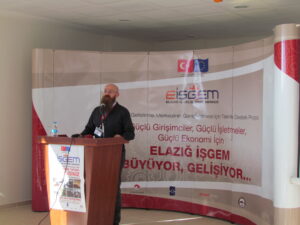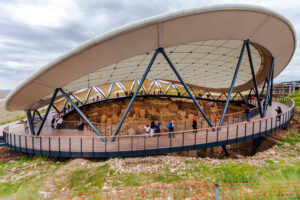
Strengthening the Internal Market
Project is comprised of six components, as follows: Component 1: Improving the strategic, legislative and institutional framework in area of Free Movement of Goods Component 2: Improving the strategic, legislative and institutional framework in area of Free Movement of Services. Component 3: Improving the legislative alignment with the

Technical Assistance for Supporting the Solution of Economic and Social Integration Problems in Diyarbakır, Şanlıurfa, Gaziantep, and Erzurum, as Major In-Migrant Destinations
Rapid migration in major urban areas, namely Diyarbakır, Şanlıurfa, Gaziantep and Erzurum (DGES), have adverse impacts in Turkey. To reduce these unfavourable effects, EKOSEP aimed to support social integration and environment-related infrastructure problems due to migration in the selected provinces in a multi-actor manner. Furthermore, it aimed to

Technical Assistance for Expansion of Elazığ Enterprise Development Centre (İŞGEM)
Research showed that additional workspaces were needed at the Elazig Enterprise Centre and that improving the technical capacity of the centre would contribute towards the delivery of better services to entrepreneurs. WEglobal was contracted to work with local stakeholders in Elazig province to develop the existing centre to

Monitoring Human Rights Situation and Advocating for Compliance with International Human Rights Framework
The main objective of this service contract is to strengthen Turkish civil society organisations’ role in the promotion and protection of human rights through expanded civil society monitoring and advocacy at various levels. The action will provide support to civil society organisations in order to document human rights

Technical Assistance for Revitalisation of History in Şanlıurfa
While tourism has been, and continues to be, important to the local economy, it has not matched its potential. To remedy this and attract more tourists, local government and businesses in the city decided to ensure that the standard of services offered to visitors met internationally accepted standards

Technical Assistance to Support CISOP 2014-2020 Operations, Information and Publicity
The overall aims of the “Technical Assistance to Support CISOP 2014-2020 Operations, Information and Publicity” are to increase the competitiveness of the Turkish economy, to open it up to innovation and to reduce regional socio-economic disparities across the country as the Turkish and EU economies converge. We are

